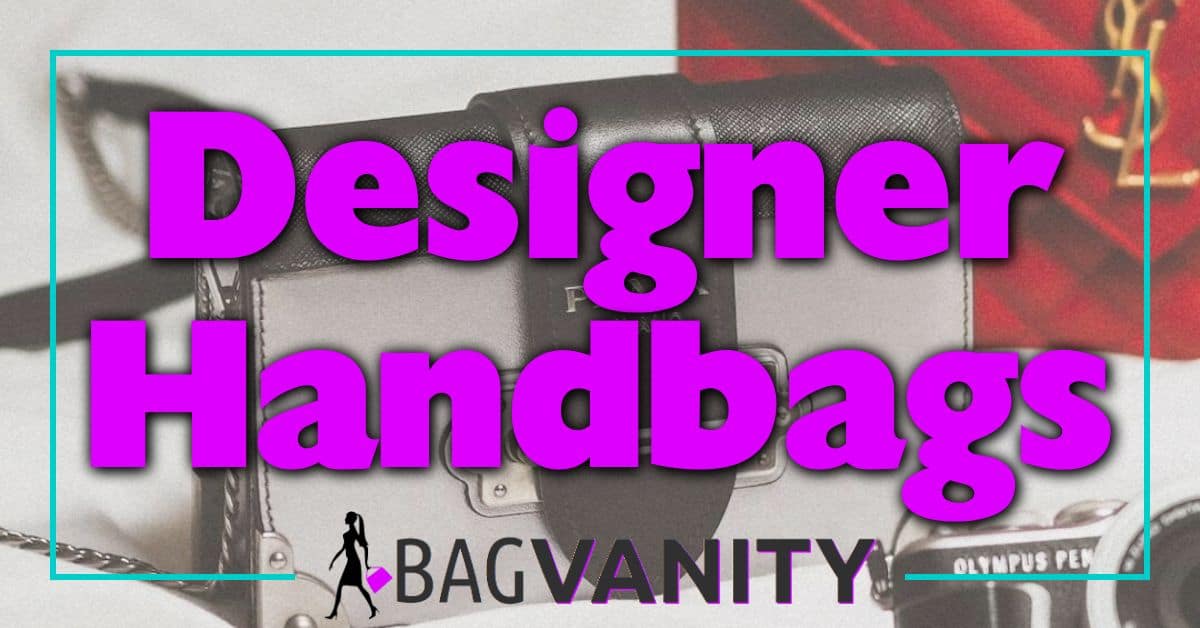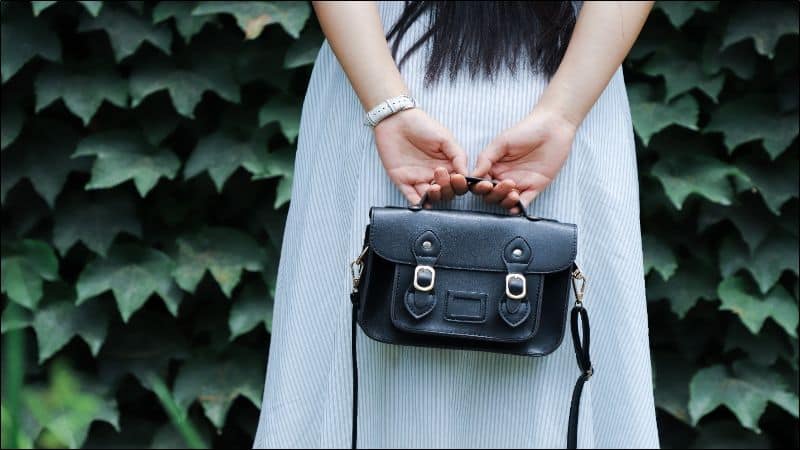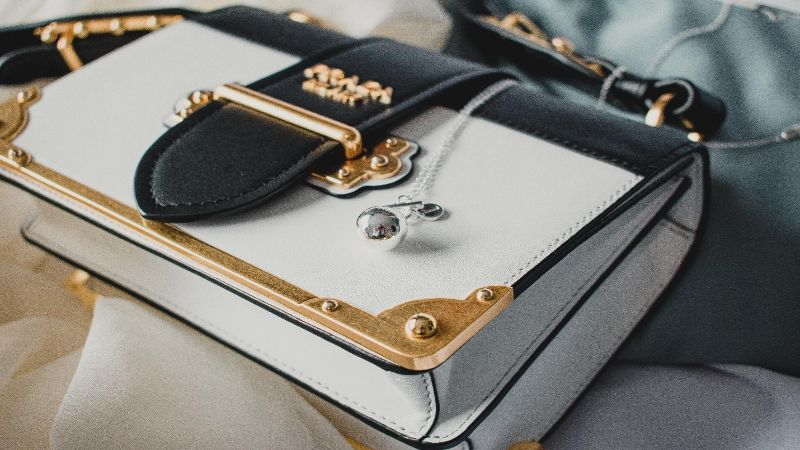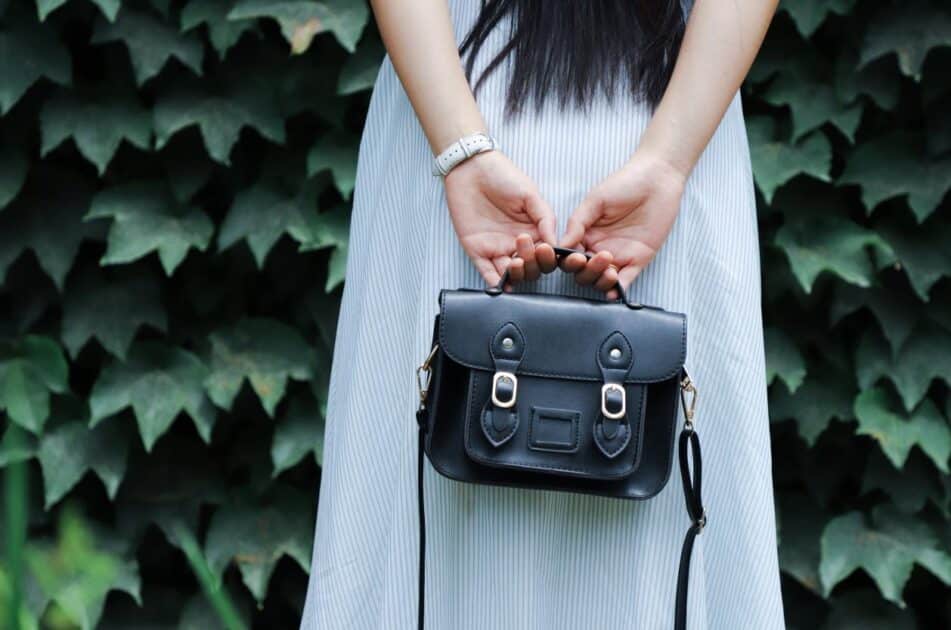Ever wondered what your designer handbag’s really worth? Maybe it’s a vintage treasure you stumbled upon at a thrift store or a luxury splurge that’s been sitting in your closet. Getting it appraised could unlock its true value, and who knows, it might just be your golden ticket!
What is a handbag appraisal?
When you dig through your closet and pull out an old favorite or a vintage market find, your curiosity about its worth needs satisfying. That’s where a handbag appraisal steps in. It determines the market value of your designer accessory. An appraiser looks at various factors, from the brand, model, age, and condition to the rarity and demand in the current market.
Why Get Your Handbag Appraised?
Remember, it’s not just about satisfying curiosity. Appraisals can be useful for:
- Insurance purposes: Having a current and accurate value can help in obtaining the right insurance coverage.
- Resale: If you’re looking to sell, knowing the value ensures you don’t get shortchanged.
- Estate planning: For high-value collections, appraisals contribute to accurate estate valuations.
What to Expect During the Appraisal
The process isn’t just a quick glance and a random number. An expert appraiser conducts a thorough examination, considering:
- Materials: The quality of leather, fabric, and other materials impacts value.
- Craftsmanship: Stitching, construction, and hardware details are meticulously checked.
- Authenticity: Verifying that the handbag is not a counterfeit is crucial.
- Condition: Even minor wear and tear can affect the appraisal.
- Provenance: A handbag with a history or previous celebrity ownership could fetch a higher price.
- Current trends: Current market desirability can cause the value to fluctuate.
Make sure to bring any original receipts, authenticity cards, boxes, or dust bags that came with your handbag. These can significantly impact the appraiser’s final valuation. Additionally, be prepared to provide any known history of the piece. Every bit of information helps paint a complete picture of your handbag’s pedigree.
Opt to select a certified professional to conduct the appraisal who specializes in designer handbags. Their expertise ensures a credible and accurate assessment of your treasured accessory.
Why should you get your handbag appraised?
Protecting your investment is a top reason to get your handbag appraised. Designer handbags can be pricey assets. Knowing their true value helps safeguard them. Think about insurance. Without a proper appraisal, you might not get full value if something happens to your bag.
Selling a handbag? An accurate appraisal can get you a fair price. It’s proof of your handbag’s worth, giving potential buyers confidence. You’re more likely to sell at the right price point with documentation in hand.
Estate planning requires knowing the value of your items. Your designer handbag could be part of your legacy. An appraisal ensures that you’re passing on its true worth.
Collectors also benefit from regular appraisals. The market fluctuates. What was worth $1,000 last year might be worth $1,500 today. Keep up with the market trends to know the current value of your collection.
Here’s a quick look at the benefits of getting your handbag appraised:
- Insurance accuracy
- Fair resale price
- Informed estate planning
- Current market value for collectors
Don’t forget, fashion trends change. An appraised handbag could suddenly become the must-have accessory of the season. When trendsetters declare a particular style ‘in’, demand spikes. If you’re in the know, you capitalize on these trends at the right time.
Think about authenticity verification. An appraiser confirms that your handbag is the real deal. This is crucial, especially with so many fakes flooding the market.
Remember, select an appraiser with a strong reputation. They’re the gatekeepers of value in the high-stakes world of designer handbags. The right professional turns your handbag into a documented asset, making each point here count.
Where to find a reputable handbag appraiser
Seeking out a qualified handbag appraiser is crucial for accurate valuation. Start with professional organizations; they’re your best bet. Look for members of the Appraisers Association of America (AAA) or the International Society of Appraisers (ISA). These professionals adhere to strict standards and are often required to participate in ongoing education.
Don’t overlook local luxury consignment shops. Many have experts on staff who can perform appraisals or point you in the right direction. High-end boutiques may also offer appraisal services or referrals—it’s always worth asking.
Online platforms are another resource. Websites dedicated to luxury goods often have a network of appraisers. Check reviews and ratings to gauge their credibility.
What to Look For in an Appraiser
Your appraiser should have a proven track record. Here’s what’s important:
- Specialization in handbags, especially your brand
- Accreditation from a recognized body
- Good standing in the industry
- Transparent process and clear fees
Consider asking for references or testimonials from previous clients. This feedback can speak volumes about their expertise and reliability.
Starting the Appraisal Process
« Best Way to Clean Handbag Lining: Preserve Your Purse with These Pro Tips
What to Do with Old Handbags: Secrets to Selling & Upcycling »
Once you’ve found a reputable appraiser, you’ll need to provide detailed information about your handbag. Expect to share:
- Brand and model
- Serial number
- Purchase history
- Condition and photographs
A reliable appraiser will also want to inspect your handbag in person if possible. Be prepared for this step as it ensures a more precise valuation.
Using these tips, you’ll be on your way to finding a trustworthy handbag appraiser. Remember, an informed approach leads to the best outcome in securing your investment’s true worth.
What to expect during a handbag appraisal
When you’re ready for a handbag appraisal, knowing what to expect can ease any nerves and help you understand the process. It’s not just about determining the value; it’s a comprehensive assessment of your prized possession.
Firstly, prepare to answer questions about your handbag’s history. The appraiser will want to know about its origin, previous ownership, and how it landed in your collection. They’ll inquire about any documentation you have, like receipts or certificates of authenticity. These documents can significantly influence the appraised value.
During the inspection, the appraiser will examine the handbag meticulously. They will look at the materials, craftsmanship, and condition. They’ll note any wear and tear, including scuffs or scratches, and check for signs of counterfeit, such as inconsistent logos or poor stitching.
Condition is a critical factor in valuation. Appraisers categorize it into excellent, good, fair, or poor. Each category can substantially affect the handbag’s market value.
Expect the appraiser to use specialized tools for a closer inspection. These may include magnifying glasses to examine small details and special lighting to determine the material’s quality and the color’s authenticity. The hardware on the bag—zippers, clasps, and buckles—will also undergo scrutiny for functionality and signs of age or corrosion.
Serial numbers, if present, will be recorded as they are a definitive way to confirm the handbag’s authenticity and track its history. Some luxury brands offer a digital record of their bags, and authentic serial numbers can be checked against these records for verification.
Here’s what the appraiser will focus on:
- Materials
- Craftsmanship
- Condition
- Authenticity
- Brand recognition
- Rarity
- Market demand
At the end of the appraisal, you’ll be provided with a detailed report that outlines the findings and the estimated value based on current market trends. Remember, prices fluctuate, and the valuation might be different if you decide to sell the bag later on. Having an up-to-date appraisal can be advantageous if the market for luxury handbags spikes or if you ever need to make an insurance claim.
Factors that determine the value of a handbag
When delving into the appraisal of a handbag, several critical factors come into play that significantly impact its value. Brand reputation stands as a paramount component. Iconic brands like Chanel, Louis Vuitton, or Hermès carry a heavyweight, and their creations often maintain or even increase in value over time.
The condition of the handbag is another decisive factor. Appraisers meticulously inspect the item for any signs of wear and tear, scratches, or stains. A handbag in pristine condition will naturally fetch a higher price. Take note of the material and craftsmanship as well. High-quality leather or exotic materials add to the handbag’s worth, and expert handiwork from reputable manufacturers enhances its value.
Rarity and exclusivity play a significant role. Limited edition pieces, or those with a unique history, can command a higher value. Moreover, the market demand fluctuates and can alter the value of a handbag significantly. Currently sought-after styles or colors will be more valuable in today’s market.
Here’s a quick rundown of key factors:
- Brand reputation
- Condition
- Material and craftsmanship
- Rarity and exclusivity
- Market demand
It’s also crucial to consider the provenance of the handbag. A well-documented history of ownership can increase value, especially if it was previously owned by a celebrity or has a storied past. Original packaging and accessories like dust bags, boxes, and receipts can also augment the bag’s appraisal value. Authenticity is essential; any doubts about a handbag’s authenticity can greatly diminish its worth.
When you’re ready for an appraisal, an understanding of these elements will prepare you to anticipate the appraiser’s evaluation methods and potentially influence the valuation dialogue. Keep this checklist in hand as you move forward in the appraisal process.
Conclusion
Armed with the right knowledge and a keen eye for detail, you’re now ready to navigate the appraisal process like a pro. Remember that the true value of your handbag isn’t just in its label or material—it’s also in its story and the market’s current appetite. Whether you’re looking to insure, sell, or simply understand your handbag’s worth, a trustworthy appraisal is key. So go ahead, reach out to that specialist with confidence and get ready to uncover the real value of your treasured accessory. You’ve got this!
Frequently Asked Questions
How do I find a reputable handbag appraiser?
Seek out professional organizations, check with local luxury consignment shops, or explore vetted online platforms. Look for an appraiser who specializes in handbags and has proper accreditation.
What should I look for in a handbag appraiser?
Ensure the appraiser is accredited, has a good standing in the industry, offers a transparent process, and clearly explains their fees. Specialization in handbags is vital for accurate appraisals.
What information do I need to provide to the appraiser?
Supply the appraiser with the brand, model, serial number, purchase history, and condition of the handbag. Providing photographs can help, but an in-person inspection is recommended for precise valuation.
Why is an in-person inspection important for appraising handbags?
An in-person inspection allows the appraiser to examine the handbag meticulously, ensuring a more precise and accurate valuation compared to descriptions and photographs alone.
What factors determine the value of a handbag?
The value is determined by its brand reputation, condition, material and craftsmanship, rarity and exclusivity, and current market demand.
Is the provenance of a handbag important in its appraisal?
Yes, the provenance, including the handbag’s history of ownership and authenticity, can significantly affect its appraised value.











